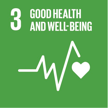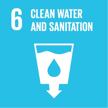About this project
Global sanitation needs are enormous. Without access to these basic services, everybody –especially children- miss out on opportunities to improve their lives with dignity and good health. Access to sanitation is a need and basic human right. An improved sanitation facility is one that hygienically separates human excreta from human contact. Improved sanitation facilities are used by less than two thirds of the world population. The global picture masks great disparities between regions. Virtually the entire population of the developed regions uses improved facilities, but in developing regions only around half the population uses improved sanitation
Water, Sanitation and Hygiene delivery should be demand driven. The people affected by the adverse effects of poor sanitation practices must make a resolution to end the practice. Otherwise any development handout given for the purpose of ending open defecation will not be effective as it has proved in the past. Open defecation and other dangerous sanitation practices are behavior issues. Therefore, for significant strives to be made and impact felt in any initiative to ending OD (open defecation), people need to be triggered to start conversation and dialogue about their health and also unanimously agree to change. The approach is to engage communities to discuss and plan how to access affordable households’ larine to prevent oral fecal contact.
The project, ‘changing WASH Behaviors and creating young sanitation entrepreneurs’ under the auspices of the Youth for Climate Change is basically aimed at Improving Sanitation and wellbeing of rural communities in Northern Region of Ghana and also ensure the involvement of youth in ending open defecation through the application of local technologies and materials. These will be achieved by educating local communities and a crop of young people to act as agents of change in the WASH sector
Goals and Objectives
Goal 1: Improved Sanitation and wellbeing of rural communities in Northern Region of Ghana
Goal 2: Involving the youth in ending open defecation through the application of local technologies and materials
Objectives for this project entail:
- Trigger 5 target communities in Sagnerigu district to collectively decide to end open defecation by June, 2019.
- Support 5 target communities to mobilize local resources to construct safe and hygienic household toilets with hand washing facilities by June, 2019.
- Train young people to become sanitation entrepreneurs and latrine sales promoters by June, 2019.
Expected result
-
- Youth of 5 communities gainfully employed in the sanitation sector
- Young people in 5 communities putting up toilet facilities and linking others to communities who need services of latrine artisans.
- Communities have key persons who continuously educate them on sanitation and the dangers of open defecation.
- Households in the 5 targeted communities own and use safe latrines
- 5 target communities have attained open defecation free (ODF) status
- Each household has a hand washing facility and is in use
- Households in the 5 targets communities’ practice daily hand washing
Sustainable Development Goals
About me / organisation
Clement Kamil Abdallah (BA, MSc), Oliver Kaleem (BA)
Mr. Oliver Kaleem is a 30 years old young man who holds a BA Integrated Community Development from the University for Development Studies, Ghana. He has been working in the development field and implementing project that targets vulnerable communities. Mr. Oliver Kaleem worked with Behasun Integrated Development Organization (BIDO), an NGO based in Tamale, the northern region of Ghana and works in the areas of WASH, Natural Resource Management, Youth Empowerment, Health and Nutrition Security. Mr. Oliver Kaleem worked in several capacities at BIDO. He worked as a project officer for UNICEF sponsored Sanitation Marketing project, where he presided over a municipality in training local government staff on WASH and related issues. He also engaged selected youth and trains them to become WASH entrepreneurs. As part of his duties, Mr. Oliver Kaleem acted as a field liaison, ensuring the formation and training of community-based finance and loan scheme groups (VSLA)
Mr. Clement Kamil Abdallah is a 29 years old development expert who holds an Msc in Water Policy, Pan African University of Water and Energy Sciences, Tlemcen Algeria and BA Integrated Community Development, University for Development Studies, Ghana. Mr. Clement Kamil Abdallah has done extensive research in the area of water and related issues. He has supervised field works on E4WASH (Entertainment for WASH) that seeks to change the behaviours of local communities to end open defecation through the construction of low-cost household toilets.


